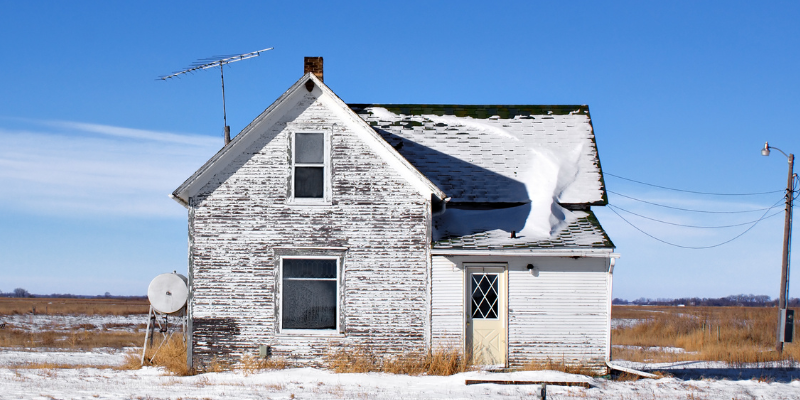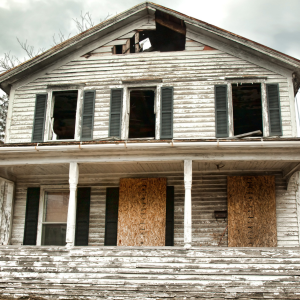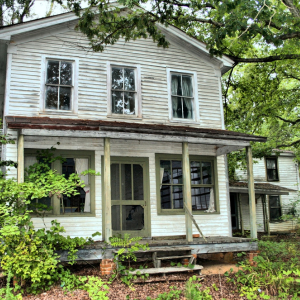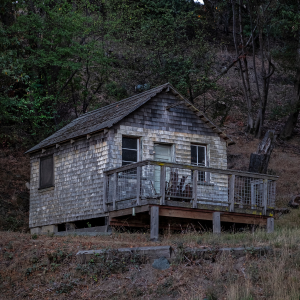
Are you leaving your Texas home empty? This quick guide from Fast House Buyers Texas helps you protect your property and avoid problems while away.
Understanding Property Vacancy Laws in Texas
If you own a home in Texas and plan to leave it empty, knowing the regulations against property vacancy is essential. When a residence is empty, property owners in Texas have to follow specific legal rules and obligations.
One important thing is to ensure that the property follows municipal rules, which may say how long it can be empty before it is considered abandoned. Homeowners should also know about any restrictions their homeowner association has on how to keep unoccupied homes looking good and how to take care of them. These laws can affect the neighborhood’s look and the property’s value.
Also, knowing what will happen to your insurance if you leave your home empty for too long is essential. Some companies may lower your coverage or request extra endorsements if your home is empty for too long. Property owners also need to ensure their taxes are paid on time so they don’t get penalties or liens for not paying their bills while away.
Talking to local real estate professionals or attorneys who know Texas property law might help you better understand how to handle these legal issues.
Legal Implications of Leaving a House Unoccupied in Texas
If you leave your Texas home empty, you need to know the legal consequences to avoid getting in trouble. Texas property rules say that owners must take care of their homes even when they aren’t there, ensuring they are safe and secure to prevent people from breaking in or damaging them.
Not doing so could lead to legal problems, such as fines or jail time for breaking the law if the property becomes a hazard. Also, insurance policies often have rules about empty houses, so if you don’t let your insurance company know about the empty home, you might be unable to pay your claims if damage happens.
Homeowners should also consider the local rules about maintaining their property and taking safety precautions. This is because different places may have different laws that must be followed. Knowing about these legal issues can help you protect your investment and ensure you follow the rules when your home is empty, while also understanding realtor fees can prepare you for potential costs when you’re ready to sell.
Risks and Challenges of Vacant Properties in Texas
In Texas, leaving a property empty comes with many risks and problems that owners must consider carefully. One of the biggest worries is that people will be more likely to break in, steal, or vandalize, which can cost a lot of money and damage property.
Aside from security risks, empty homes are more likely to have maintenance issues like water leaks or electrical problems that aren’t noticed, which could lead to expensive fixes. Texas’s harsh environment also brings its problems. For example, mishandling extreme heat can worsen structural issues and damage landscaping.
Insurance companies often consider empty homes a higher risk, which could mean higher premiums or even policy cancellation if the home doesn’t meet the insurer’s standards for vacancy. To avoid fines or legal disputes, homeowners should know local laws and homeowner group rules about keeping vacant homes in good shape.
Anyone who will be away from their Texas home for a long time needs to be aware of these risks.
Texas vacant properties risk vandalism, safety issues, and declining neighborhood values. Owners face costs and legal challenges. To avoid these problems, sell your home for cash in Texas as a fast, easy solution.
Insurance Considerations for Vacant Homes in Texas

It is essential to comprehend the complexities of home insurance to protect your Texas property from potential hazards when you leave it vacant. Notifying your insurer of the vacancy is crucial, as standard homeowners insurance policies frequently do not cover unoccupied properties for extended periods.
By doing so, you can investigate alternatives such as a vacant home insurance policy tailored to mitigate the distinctive risks associated with an unoccupied property or a vacancy endorsement. These policies protect against risks such as theft, vandalism, and weather-related damages, which may be more prevalent when a home is unattended.
Furthermore, consistent security measures, including installing alarm systems and maintaining the property properly, can help reduce premiums and mitigate potential claims. By maintaining consistent communication with your insurance expert, you can ensure that you comprehensively understand the terms and conditions that apply to vacant homes in Texas. This will enable you to make informed decisions about protecting your investment while adhering to legal obligations.
Maintaining Your Home While It’s Unoccupied: Best Practices
Maintaining your vacant Texas house needs careful planning to ensure safety and legal compliance. Begin by securing your property; install high-quality locks on all doors and windows, and consider a security system that includes cameras or motion detectors for further safety.
Regular maintenance is essential; arrange for someone you trust to inspect the home regularly, ensuring that the plumbing systems are in good working condition and that there are no leaks or water damage. It’s also a good idea to keep up with lawn maintenance or employ a professional to maintain curb appeal, which deters possible invaders by making the home appear occupied.
Set thermostats to save energy and prevent mold and mildew. If possible, notify local law enforcement of the vacancy so that they can perform routine checks.
In addition, notify your insurance provider of the vacant state to avoid any issues with coverage if an incident occurs. These safeguards protect your investment and give you peace of mind until you are ready to return or sell the home.
Security Measures for Protecting Vacant Properties

When you leave your Texas house empty, you must take strong security measures to protect it from danger. The first step is to install a full security system with motion sensors and cameras that always watch the property.
Smart home technology, such as smart locks and lighting that can be controlled from a distance, can make it look like someone is home and keep burglars away. Ensure all your doors and windows are locked with high-quality locks. You could also want to install deadbolts or steel bars at entrance points to make them even safer.
Let your trustworthy neighbors know you’re not home so they can report anything strange. This will help with neighborhood watch activities. Also, keep up with the yard work so it doesn’t look neglected, which can draw unwelcome attention.
Timed lights inside and outside the house make it look like someone is there, which makes your home even safer. These preventive procedures make your empty Texas house safer and provide you with peace of mind while you’re gone.
How to Prevent Vandalism and Theft in Vacant Homes
To avoid vandalism and theft in abandoned properties, especially in Texas, establish a complete approach that combines physical security measures and current technologies. Begin by installing high-quality locks on all doors and windows to dissuade burglars.
Consider adopting smart home security systems with surveillance cameras, motion detectors, and alarm systems linked to your smartphone for real-time notifications. Maintain the property’s exterior by mowing lawns and keeping gardens tidy to create the impression that the home is occupied.
Using timed switches for lights can create a sense of activity inside the home. It’s also a good idea to warn trusted neighbors about your absence so they can watch for unusual activity.
Using these tactics improves the security of your vacant property and provides peace of mind by taking proactive measures against vandalism and theft.
The Impact of Local Ordinances on Property Vacancy in Texas
Understanding the influence of municipal ordinances on property vacancy in Texas is critical for homeowners who intend to leave their homes empty. Various communities in Texas have particular restrictions governing how long a property can be vacant and under what conditions.
Homeowners must know these rules to prevent fines or penalties if their homes are neglected or in disrepair. Some localities mandate that a vacant home maintain its outside appearance to avoid becoming a nuisance or attracting vandals.
Furthermore, some cities may compel owners to register their vacant houses with local authorities, ensuring that emergency contact information is available if necessary. Complying with local rules protects homeowners’ investments and the community’s well-being by preventing negative repercussions of long-term vacancies, such as decreased property values and increased crime rates.
Understanding these legal insights is critical for any Texan homeowner contemplating a lengthy stay away from their property.
Financial Consequences of Leaving a Home Empty in Texas

Leaving a home vacant in Texas can have several financial implications that homeowners should be aware of. Unoccupied homes may result in higher property insurance premiums or cancellation due to increased risk of vandalism, theft, and maintenance issues that go undiscovered.
Property taxes may still apply to an empty home, resulting in continued expenses without rental income to balance them. Homeowners also risk losing home value if regular upkeep is neglected, which can lead to costly repairs later on.
Furthermore, utility costs may still need to be paid to avoid issues such as mold growth caused by humidity concerns that are common in Texas. Considering these financial ramifications is critical for any homeowner wanting to keep their Texas house vacant for a lengthy period.
Leaving a home vacant in Texas can incur costly taxes, utilities, and maintenance. Mortgage payments and risks like vandalism add financial strain. At Fast House Buyers Texas, we buy houses in Harlingen and nearby cities for a quick, hassle-free sale.
How to Communicate with Neighbors While Your House Is Empty
When leaving your Texas house vacant, effective communication with neighbors is essential for legal compliance and property safety. Begin by alerting reliable neighbors about your plans to keep the house vacant for an extended period.
Please provide your contact information and emergency contacts to ensure they can reach you in an emergency. Encourage open communication by encouraging them to report suspicious or strange activity on your property while you’re away.
Set up regular phone or email check-ins to monitor your home’s status. Keeping neighbors aware builds a sense of community and adds a degree of security, potentially discouraging trespassers or vandals.
To avoid confusion or suspicion, ensure they are informed of any maintenance schedules or service visits by landscapers, cleaners, or repair professionals. Maintaining clear and constant communication with neighbors strengthens the protective network surrounding your vacant Texas house, protecting it from potential threats and providing peace of mind while you are away.
Real Estate Market Considerations for Long-term Vacancy
When contemplating the possibility of leaving your Texas property vacant for an extended period, it is imperative to comprehend the long-term implications of the real estate market. The Texas housing market’s dynamic nature can substantially impact property values, taxation, and rental opportunities.
Homeowners should assess current market trends to ascertain the potential for property value appreciation or depreciation during vacancy. It is crucial to comprehend local demand, as regions with a high rental demand may provide lucrative leasing options to mitigate the expenses of maintaining an empty property.
Additionally, understanding the neighborhood’s development plans can offer valuable insights into future property value fluctuations. It is also crucial to consider the potential impact of extended vacancies on insurance premiums and coverage options, as insurers frequently modify policies by occupancy status.
Ensure compliance and prevent potential fines or penalties by remaining informed about zoning laws and any local ordinances related to unoccupied properties. Consulting with a real estate professional who is well-versed in the Texas market can be advantageous for effectively managing the financial and legal responsibilities of your vacant property. This will enable you to navigate the complexities and make informed decisions.
Exploring Short-term Rental Options While Away From Your Home
When contemplating short-term rental options for your Texas residence while you are away, it is imperative to comprehend the legal obligations and safety protocols involved. Initially, become acquainted with the regulations of your local homeowner association and zoning laws, which may impose limitations on short-term rentals in your region.
Furthermore, obtaining the appropriate permits is imperative to prevent legal complications or incur penalties. To guarantee the security of your property, it is recommended that you implement sophisticated security systems, including surveillance cameras and smart locks, that can be remotely monitored.
Risks associated with theft or property damage can be reduced by screening potential visitors through reputable platforms. It is also crucial to verify that insurance policies cover short-term rental activities, as traditional homeowners’ insurance may not offer sufficient protection
Establishing explicit policies regarding noise levels and property usage for visitors can facilitate maintaining positive relationships with neighbors. By comprehending these critical components of temporary home rentals, you can optimize income potential while guaranteeing compliance and safety during your absence.
Pros and Cons of Selling vs Keeping a Vacant Property
Examine the benefits and disadvantages of selling versus keeping a vacant property in Texas. Selling a vacant home alleviates upkeep costs like maintenance, insurance premiums, and taxes associated with the house.
Additionally, relinquishing ownership mitigates risks related to vandalism or natural damage to an unoccupied dwelling. On the other hand, holding on to a vacant property may be beneficial if there is an upward trend in real estate appreciation, since it could translate to greater market value as time progresses.
Additionally, retaining ownership enables personal use in the future or renting out the property, which can provide passive income streams over time. Securing a vacant property demands active monitoring against unauthorized access, degradation, or deterioration.
In addition to maintaining security, local regulations concerning neglected properties must be observed lest punitive fines be imposed. Weighing these aspects, along with your financial circumstances and other parameters like the state of Texas real estate market and long-term objectives for the property, will help you make better decisions.
Understanding Trespassing Laws Related to Unoccupied Homes
Knowing the state’s trespassing rules is essential for properly protecting your property when you leave your Texas home empty. According to Texas law, trespassing means entering or staying on someone else’s land without permission, which can be a big problem for people who own homes that aren’t being used.
To prevent people from breaking into your home, you should set clear “No Trespassing” signs and lock all the doors and windows. These signs can make it easier to take legal action against people who aren’t supposed to be there and ignore them.
Knowing the difference between civil and criminal trespass in Texas is also essential. People who commit civil trespass can be sued for damages, while people who commit criminal trespass can be fined or jailed. Also, people who own their own homes should know about the “Castle Doctrine,” which lets people use force against someone who breaks in without permission in some situations.
Knowing about these parts of Texas’s trespassing rules can help you keep your empty house safe from unwanted guests and possible legal problems.
How Long Before a House Is Considered Abandoned in Texas?
Homeowners in Texas who want to leave their property empty need to know when a house is considered abandoned. Legally, a house is considered abandoned if it shows clear signs of neglect and has not been used for a while. However, Texas law doesn’t set specific time for all cases.
A property is usually considered abandoned when it has unpaid property taxes, no utilities, or lacks upkeep. Homeowners should know that local laws may have specific rules about when a house can be abandoned.
Monitoring and maintaining your empty home regularly is essential to avoid legal problems and keep it safe. Taking safety precautions like installing security systems and letting the authorities know you won’t be around can also help prevent the impression that you have left them alone.
Knowing these legal facts, you can safely and responsibly care for your Texas home when no one lives there.
How Long Can a House Remain Vacant?
When considering how long a house can stay empty in Texas, it’s essential to consider the legal and safety issues that arise. There is no legal time limit on how long a house can be empty, but leaving it empty for a long time can cause problems, including troubles with your insurance coverage.
Many home insurance policies require the homeowner to tell the insurance company if the property will be empty for a long time, usually 30 or 60 days. If you don’t, your claims or policies could be denied.
Leaving your Texas home empty increases the likelihood of vandalism, theft, and maintenance problems. Installing alarm systems, having neighbors or local agencies check on your home regularly, and keeping the outside of your property looking nice can all help lower these dangers.
Also, it’s important to know the rules in your area about utilities and property taxes when you’re not living there so that you can follow them and organize your finances. So, even though there isn’t a strict legal time limit on how long a house can remain empty in Texas, savvy homeowners should consider their legal duties and safety measures to keep their investment safe.
A house can remain vacant for some time, but extended vacancies may affect insurance coverage and increase risks like vandalism, water damage, and deterioration. Regular maintenance is essential to protect the property. For assistance, Contact Us at Fast House Buyers Texas.
Can I Leave My House Empty for a Month?
For legal and safety reasons, leaving your Texas home empty for a month needs to be carefully planned. Texas property owners can temporarily leave their homes empty, but knowing the law and taking the proper safety measures is important.
Check your homeowner’s insurance policy first to ensure it covers you during the vacancy period. Some policies may have specific rules about empty properties. Notify the local government or trusted neighbors that you will be away so they can keep an eye on the property.
Fitting smart home devices like alarms or cams that can be monitored from afar could make your home safer. All the doors and windows should be securely locked, and there should be no obvious signs of vacancy, like mail or newspapers that haven’t been picked up.
By following these important safety tips and learning about the laws in Texas about leaving your home empty for a month, you can relax while you’re away.
Selling your home? Fast House Buyers Texas offers quick, as-is sales with fair cash offers. There are no repairs or hidden fees, just a simple, efficient process from start to finish. Contact us at (956) 204-3333 today for a free, no-obligation offer.
| LONE STAR STATE | ILLEGAL ACTIVITY | CRIMINAL ACTIVITY | CRIMINALS | THIEVES | HOMEOWNERS’ ASSOCIATION |
| HOAS | WEATHER CONDITIONS | PROPERTY OWNERSHIP | HOMELESSNESS | HOMELESS | HAZARDS |
| FEES | BURGLARY | SQUATTING | MORTGAGE | LANDLORD | FIRE HAZARDS |
| TAX LIEN | ZIP CODES | SENSORS | SAN ANTONIO | NATURAL DISASTERS | MOTION SENSORS |
| INFESTATIONS | GRAFFITI | CCTV |
Helpful Texas Blog Articles
- Guide To Leaving Your Texas Home Vacant
- How to Sell Jointly Owned Property in Texas
- Paperwork Needed to Sell a House by Owner in Texas
- Selling a House with Code Violations in Texas
- Understanding Realtor Fees In Texas
- Can You Back Out Of A Real Estate Contract In Texas?
- Selling Your House As-is In Texas
- Selling A Foreclosed Home In Texas
- Selling Your Texas Home By Owner
- Understanding Appraisal Required Repairs In Texas
- Texas Estate Administrators Can Legally Sell Real Estate

